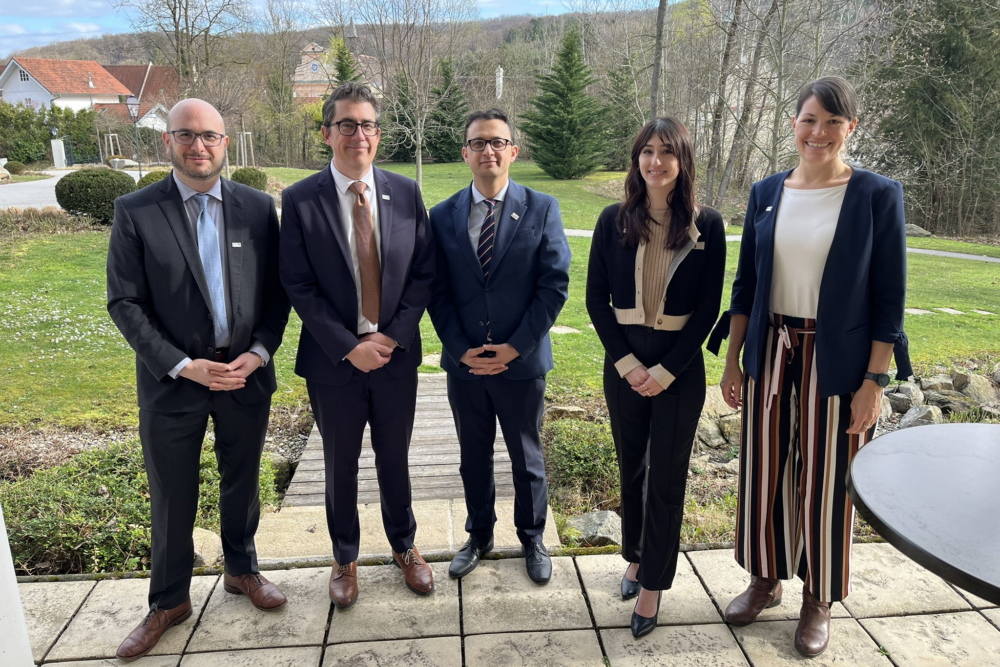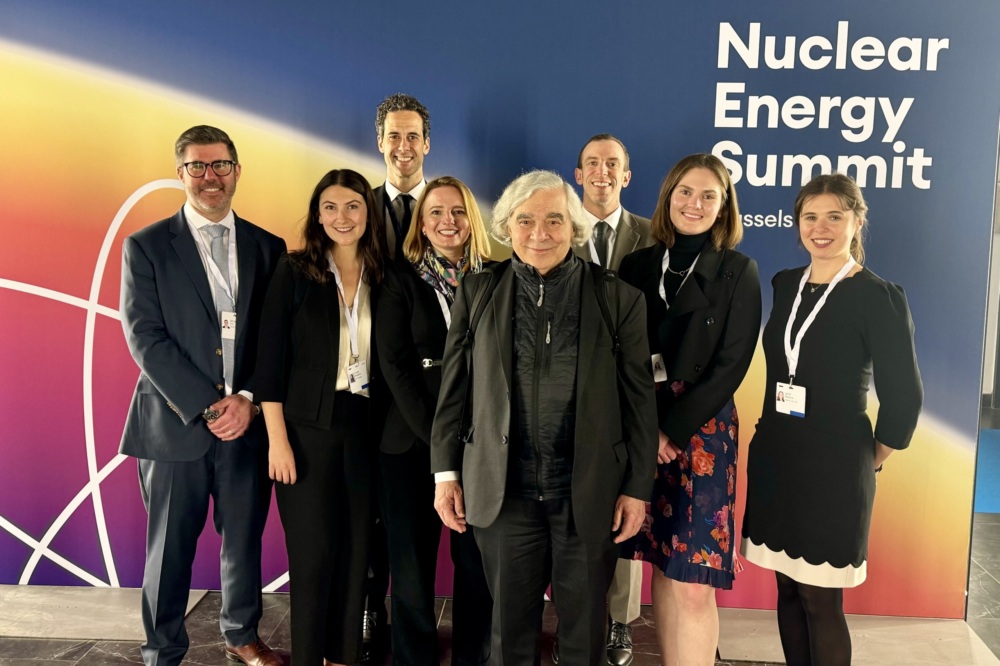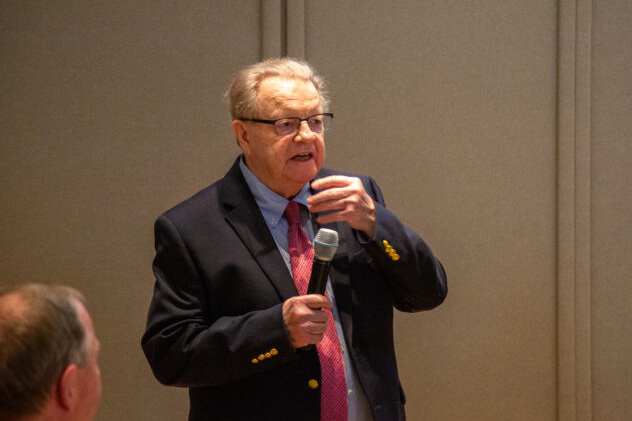Pace of Securing Nuclear Weapons Material Has Slowed Since 9/11
New Harvard Report Grades Programs, Recommends Actions to More Effectively Prevent Nuclear Terrorism
The amount of potential nuclear weapons material secured in the two years immediately following September 11, 2001, was less than the amount secured in the two years immediately prior to the 9/11 terrorist attacks, according to official data described in a new report from Harvard University on steps needed to keep nuclear weapons out of the hands of terrorists and hostile states. To accelerate the pace, sustained Presidential leadership, particularly in the United States and Russia, is urgently needed to sweep aside disputes over access to sensitive sites and other bureaucratic obstacles to progress, according to the report.
The new report, Securing the Bomb: An Agenda for Action, finds that programs to reduce this danger are making progress, but there remains a potentially deadly gap between the urgency of the threat and the scope and pace of efforts to address it. During fiscal year (FY) 2003, U.S.-funded programs completed comprehensive security and accounting upgrades on enough weapons-usable nuclear material to make more than two thousand nuclear weapons (35 tons of nuclear material), and over 30 tons of highly enriched uranium (HEU) was permanently destroyed.
Slow pace. However, the 35 tons of potential bomb material secured last year is just 6% of the estimated 600 tons of potentially vulnerable nuclear material in Russia alone. By the end of FY2003, comprehensive security and accounting upgrades had been completed for only 22% of this material, and initial “rapid upgrades” – bricking over windows, installing detectors at doors – for only 43%. If progress continues at last year’s rate of 35 tons per year, it will take 13 years to finish the job in just the former Soviet Union. With Presidential action to break through the logjams, the work could be completed in four years.
“This report reveals how much more needs to be done to protect against nuclear terrorism. We are not doing all that we can and all that we must,” said former Senator Sam Nunn, Co-Chairman of the Nuclear Threat Initiative (NTI), which commissioned the report. “There is a leadership gap between the words and deeds of government officials around the globe.”
Need for action. “President Bush has an opportunity to take actions now that would dramatically reduce the danger of nuclear terrorism within a few years,” said Matthew Bunn, the report’s co-author with Anthony Wier, from the Project on Managing the Atom at Harvard University’s Kennedy School of Government. “He needs to seize that opportunity, before it’s too late. The terrorists will not wait.”
The report notes that President Bush himself has set the bar for urgent action, saying “the nations of the world must do all we can to secure and eliminate” these stockpiles, and warning “history will judge harshly those who saw this coming danger but failed to act.”
Securing the Bomb and its online companion provide the most detailed assessment of global nuclear threat reduction programs to date, both in terms of work completed and dollars spent. The report includes a comprehensive action plan for accelerating the effort and debunks in detail a series of myths that have led policy-makers around the world to downplay the danger. The website features in-depth
program-by-program assessments and recommendations and an interactive budget database including the budgets for each nuclear threat reduction program from 1992 to the present.
Among the report’s key findings:
-
While Russia’s economy has stabilized, dangerous nuclear security vulnerabilities still exist – from broken intrusion detectors to security gates propped open for convenience. The security manager at Seversk, one of Russia’s largest nuclear material processing facilities, reports that guards routinely patrol without ammunition in their guns, to avoid accidental firing.
-
Threats to these facilities appear to be growing: for example, a 2003 criminal case revealed that a Russian businessman had been offering $750,000 for stolen weapon-grade plutonium for sale to a foreign client – and had contacted residents of a closed nuclear city to try to arrange the purchase.
-
Enough HEU for hundreds of nuclear weapons–some 20 metric tons–exists as fuel for civilian research reactors in more than 130 research reactors in more than 40 countries around the world, many of them guarded by no more than a night watchman and a chain-link fence.
-
While Pakistan’s nuclear stockpiles are heavily guarded, the revelation that the father of Pakistan’s bomb was leading a network peddling nuclear supplies and bomb designs all over the world highlights the danger that nuclear insiders might help the large armed remnants of al Qaeda in Pakistan gain access to nuclear weapons or materials.
-
U.S. officials have struggled to advance efforts to secure nuclear stockpiles, but progress has been slowed by disputes over access to sensitive sites, liability in the event of accident, and countless other bureaucratic obstacles. Only sustained Presidential leadership can overcome these barriers.
-
Dozens of sets of equipment the United States provided for a “quick fix” of security at Russia’s nuclear warhead sites four years ago are still sitting in warehouses, uninstalled, more than two years after the 9/11 attacks – because disputes over the installation have festered unresolved.
-
Additional action is needed not only from the U.S. government, but from governments around the world. The $20 billion Group of Eight (G8) “Global Partnership Against the Spread of Weapons and Materials of Mass Destruction,” despite its promise, has so far focused only a small fraction of its effort on the urgent task of securing the world’s nuclear stockpiles—and is still struggling to move from pledges and words to action.
Among the report’s key recommendations for action:
-
President Bush should issue a directive making it a top priority to secure every nuclear warhead and every pound of nuclear material worldwide, set an aggressive timetable, and appoint a senior official to lead the effort, find and fix the obstacles, and keep it on the front burner at the White House.
-
At their next summit, President Bush and President Putin should agree on securing all Russian nuclear warheads and materials within four years, new steps to sweep aside the access problem and other obstacles, and a Russian commitment to sustain security after U.S. assistance phases out.
-
President Bush should make securing all the world’s nuclear stockpiles a central element of U.S. relations with Russia, Pakistan, and other key states around the world.
-
President Bush should launch a “global cleanout” effort to remove weapons-usable nuclear material from the world’s most vulnerable sites – especially civilian research reactors — within four years, establishing a task force that consolidates all the necessary resources, authority, and expertise to accomplish that mission.
-
President Bush and President Putin should launch a reciprocal initiative under which each side would take thousands of nuclear warheads it no longer needs—including any remaining warheads not equipped with difficult-to-bypass electronic locks or comparable means to prevent their use if stolen—and place them in secure storage open to monitoring by the other side, and commit that they will be verifiably dismantled.
-
Russian President Putin should make clear that nuclear security is a critical priority for Russia’s own national security, devote sufficient resources to the task, direct his government to remove the obstacles slowing U.S.-Russian and global cooperation, and appoint a full-time official to lead the effort.
-
At the G8 summit next month, the leaders should expand the Global Partnership to include all nations with nuclear stockpiles, set an aggressive timetable for securing these stockpiles, and announce a minimum global security standard that their countries will each commit to meet and to help other states meet.
###




